Introducing the 2022 MSU Cloud Computing Fellows
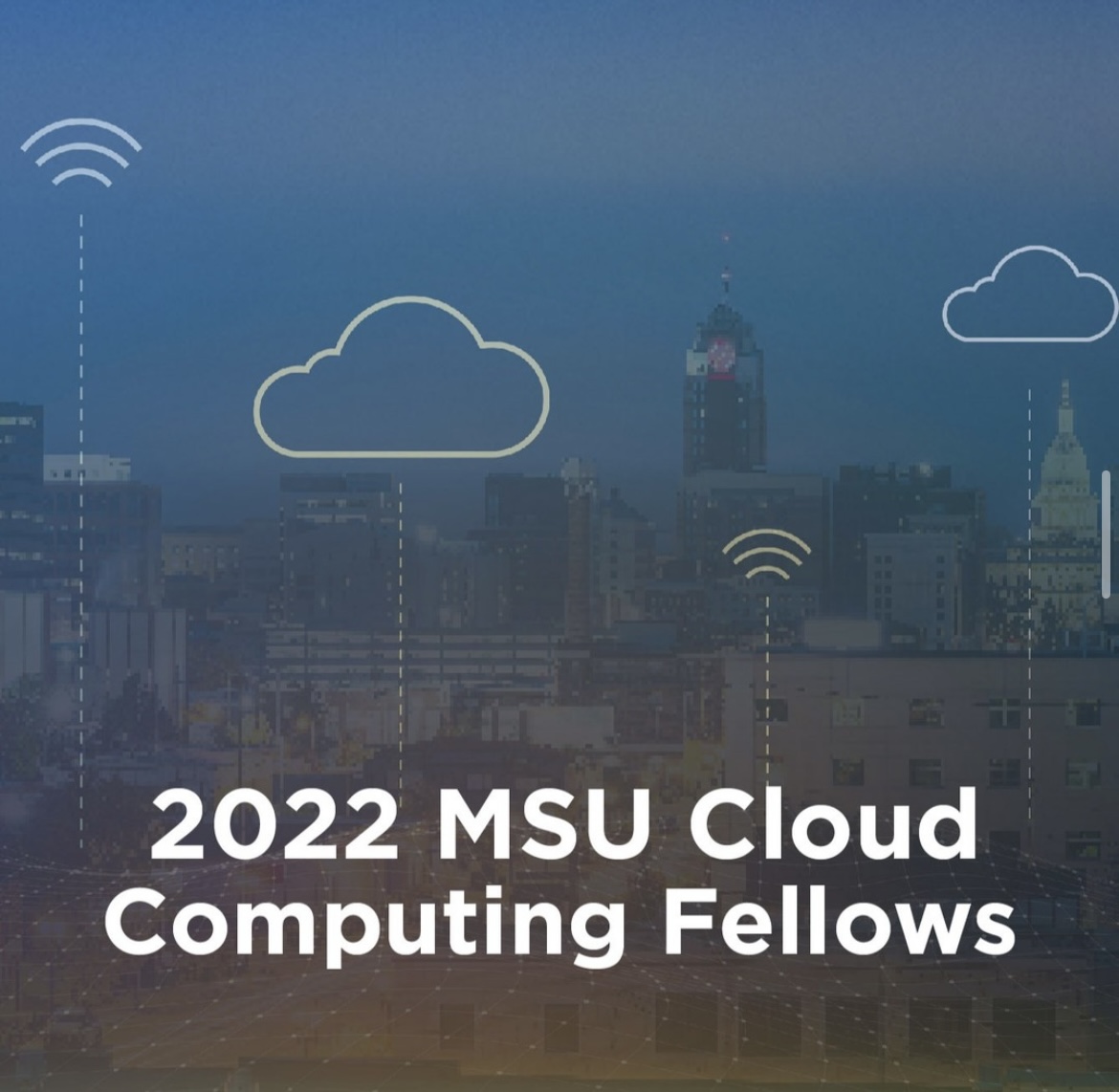

The members of the 2022 MSU Cloud Computing Fellowship cohort have begun the first phase of their fellowship experience. Led by MSU’s Institute for Cyber-Enabled Research (ICER) and the ITS Data Management & Analytics (DMA) group, the fellowship is designed to provide cloud computing expertise and hands-on experience for academic researchers.
“The fellows should be thought of as cutting-edge researchers whose impact will be to push the boundaries of traditional high-performance computing,” explains Dr. Mahmoud Parvizi, MSU Cloud Computing Fellowship facilitator and former participant. “They are future principal investigators who will most certainly influence others whose research will benefit from cloud computing resources.”
Computational research is becoming increasingly necessary in fields that have not traditionally utilized high-performance computing. Accordingly, this cohort of fellows represents a cross-section of academically diverse research areas across MSU.
“The most exciting aspect of the fellowship is the opportunity for ICER to contribute to the advancement of academic research at a university-wide level with the introduction of cloud-based tools generally unavailable in a traditional high-performance computing environment,” notes Parvizi.
The fellowship culminates in a final symposium where each participant will present their incorporation of cloud-computing resources into their current research. The symposium serves as an opportunity for fellows to showcase their real-world application of cloud-computing tools in an academic environment.
ICER and DMA are proud to introduce this impressive group of fellows. Read on to learn more about each fellow and their research.
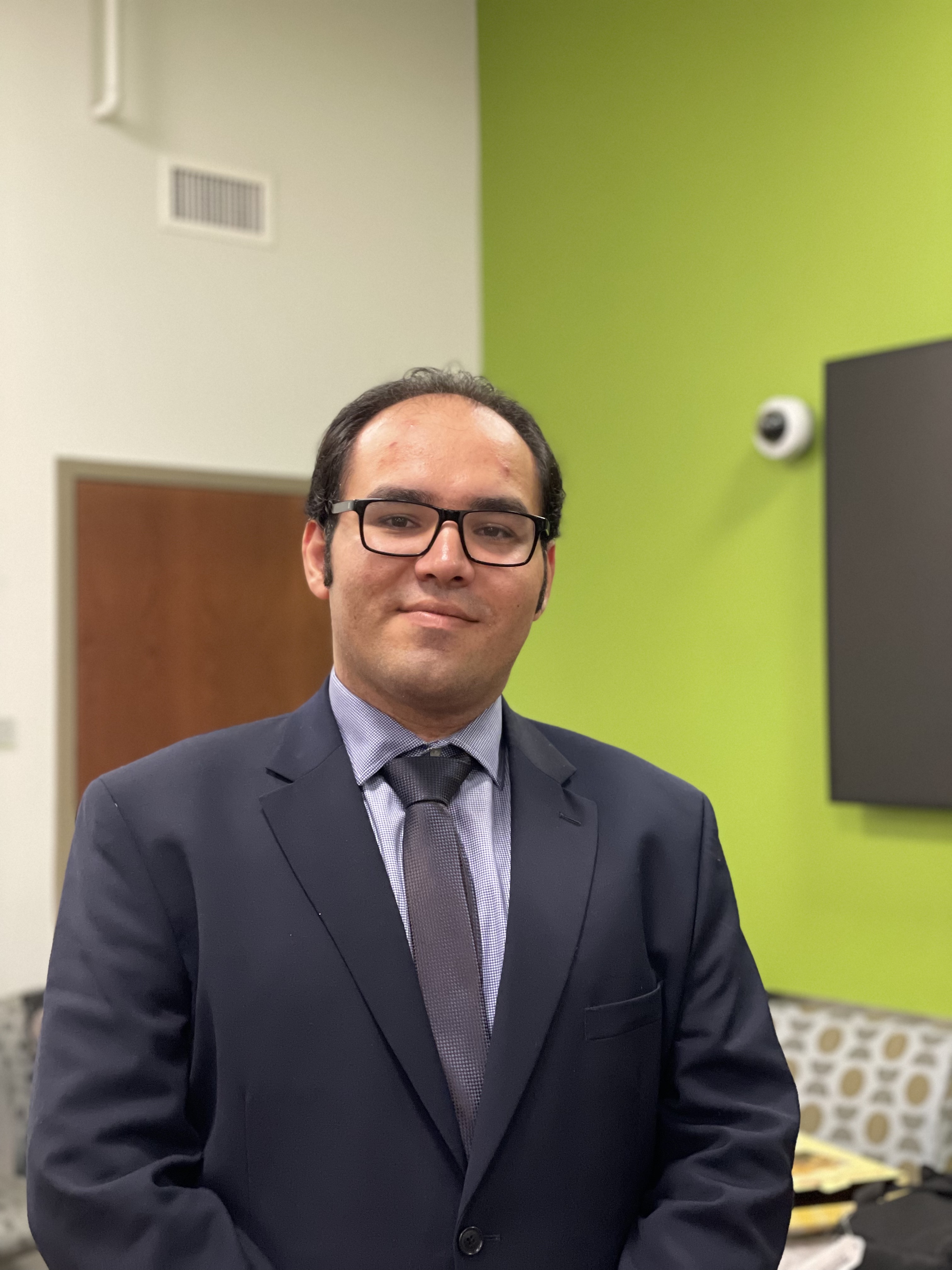 S. Farhad Abdollahi
S. Farhad Abdollahi
Department/Unit: Civil Engineering
Research Description: Farhad Abdollahi's research mainly focuses on modeling the pavement structures nationwide by which he can predict the remaining service life of the pavements, different distresses on pavements, etc. These models help to evaluate the cost efficiency of different scenarios of pavement preservation, as well as estimate the associated damage cost caused by each vehicle class to the existing pavements.
Biography: Before joining Michigan State University as a Ph.D. student in the Civil and Environmental Engineering Department, Farhad gained his B.S. in Civil Engineering and M.S. in Pavement Engineering, both at Sharif University of Technology, Tehran, Iran. Farhad's main research area includes pavement analysis and design, viscoelastic materials, and computational modeling. He is currently working on a Federal Highway Administration-funded project for the modeling of numerous pavement structures nationwide.
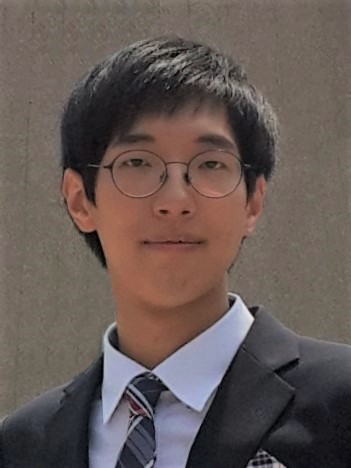 Suhwoo Ahn
Suhwoo Ahn
Department/Unit: Communication
Research Description: Suhwoo Ahn's research focuses on citizens' engagement with political information and its impact on their attitudes and behaviors. Recently, he studied how bipartisan messages that emphasize common grounds between Republicans and Democrats influence the favorability of their own political party and animosity toward opposing parties. His work has been published in the Patient Education and Counseling and Journal of Political Marketing.
Biography: Suhwoo is a doctoral student in Communication at Michigan State University. He received his Master of Arts in Communication from Seoul National University and his dual Bachelor of Arts in Mass Communication and Sociology from Sogang University in the Republic of Korea. He is involved in various research projects and teaching undergraduate classes at Michigan State University.
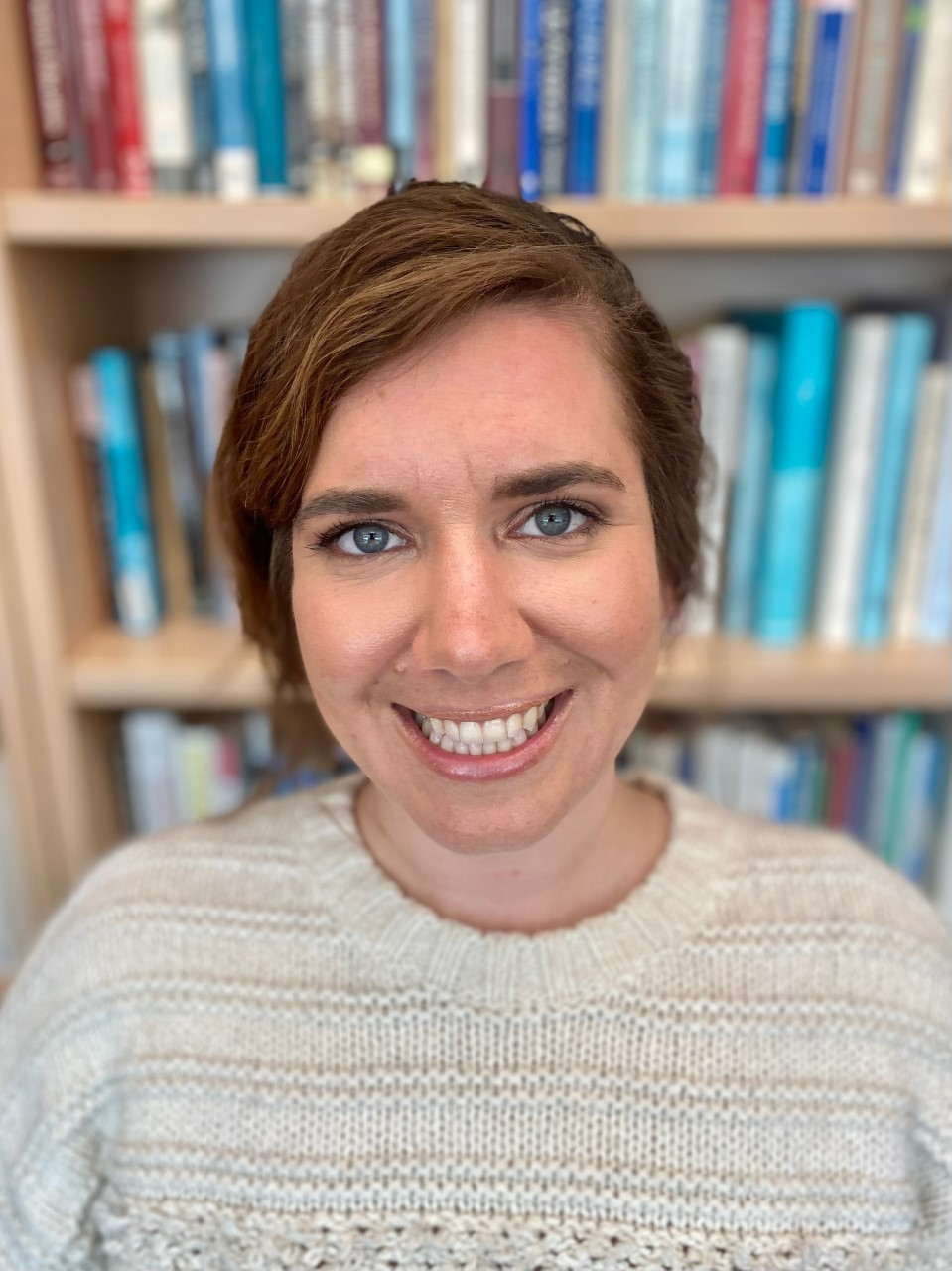 Lydia Bradford
Lydia Bradford
Department/Unit: Measurement and Quantitative Methods
Research Description: Currently in Education Research, there has been a push for teacher observations during the testing of interventions to gain insights into the implementation of the intervention on the ground. Often, these observations include lengthy field notes along with a set of scoring guidelines to give the teachers scores within specified categories. Writing observation field notes and then scoring them can be very time-consuming for observers and/or researchers. Lydia Bradford's current project looks to use a variety of machine learning methods to create observation scores from the field notes themselves and then build a tool for researchers to use for scoring observations in their own research.
Biography: Lydia is a fourth-year Ph.D. student in measurement and quantitative methods with interests in statistical modeling and analysis, research design, and causal inference. She graduated from Duke University with a bachelor’s degree in Romance languages and Global Health with a minor in Economics in 2017, where she became interested in research methodology in both public health and economics. After graduating, she was a high school chemistry and economics teacher where she became interested in research methodology in Education Research which eventually led to her beginning her studies at Michigan State University. She hopes to continue research in methodology while working on larger-scale studies as a quantitative methodologist.
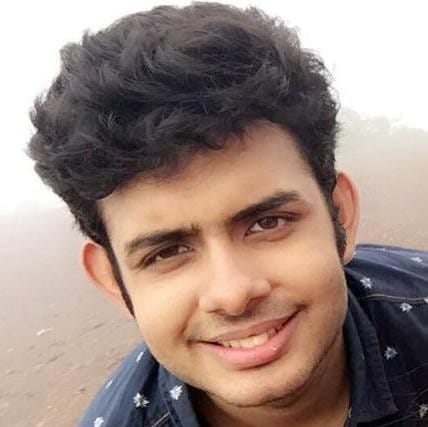 Ritam Guha
Ritam Guha
Department/Unit: Computer Science and Engineering
Research Description: Ritam Guha's current research focuses on predictive quality in manufacturing using time-series analysis. Every day, a huge amount of energy and effort gets wasted in manufacturing because the final product does not satisfy the quality requirement in many cases. His research work attempts to predict the quality of the final products based on the simulation of the sensor readings representing the manufacturing process and optimizes the energy utilization to reach satisfactory product quality.
Biography: Ritam received his B.E. degree in Computer Science and Engineering from Jadavpur University, India, and joined the Ph.D. program at Michigan State University after that. His research interests include evolutionary computation, deep learning, multi-objective optimization, AutoML, and many more related fields. When he is not in his lab, he can be found watching animes, playing badminton/table tennis, or driving on speedy highways.
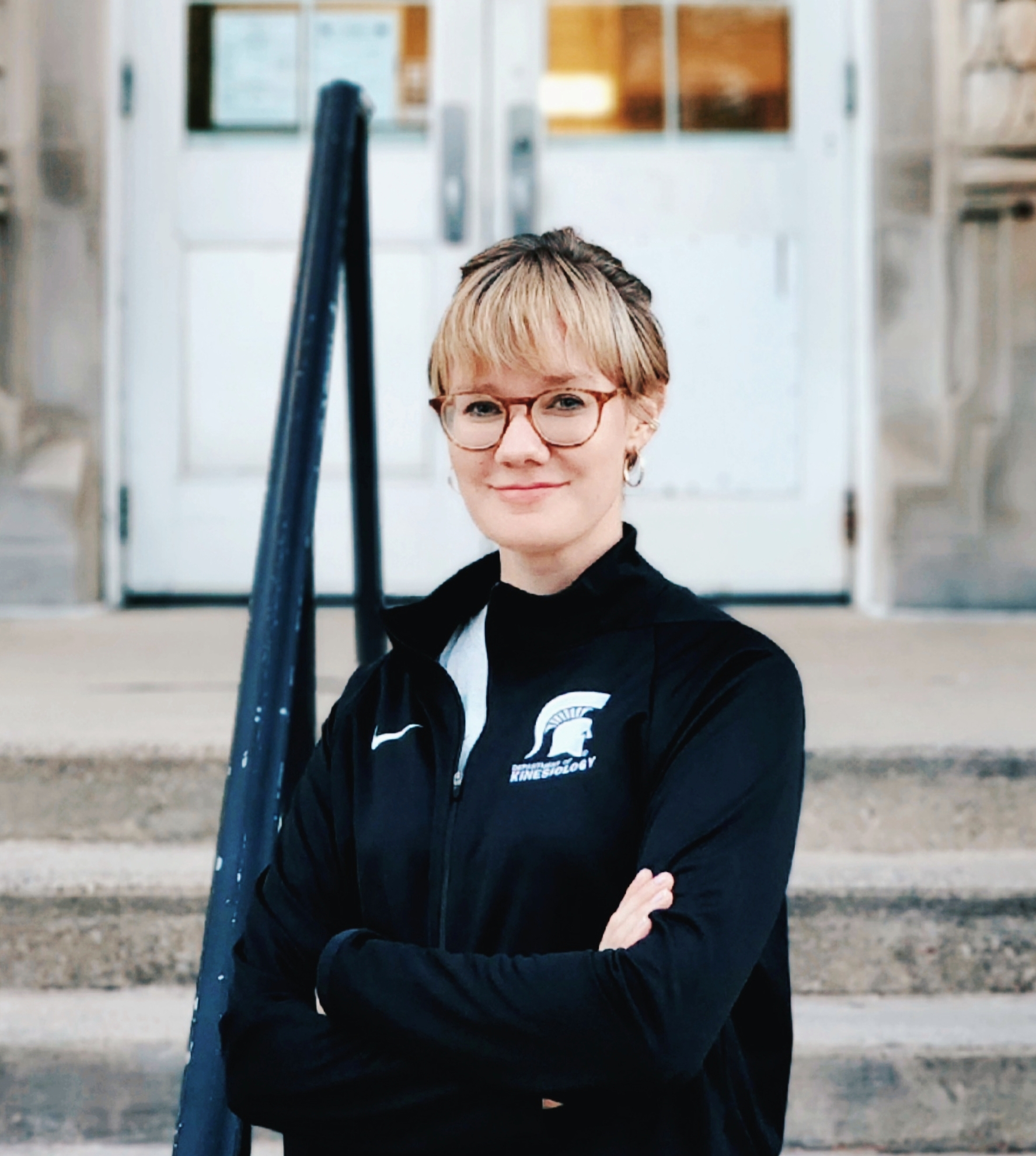 Faith Houck
Faith Houck
Department/Unit: Kinesiology
Research Description: Faith Houck's research focuses on improving human performance in professional race car drivers. She aims to combine cloud computing and physiology data to increase human safety measures in motorsport.
Biography: Faith is a second-year Ph.D. student in the Department of Kinesiology. She works in the Spartan Motorsport Performance Lab directed by Dr. David Ferguson. Her research interests focus on improving human performance in professional race car drivers. She aims to combine cloud computing and physiology data to increase human safety measures in motorsport. When not in the lab or at a racetrack, Faith enjoys gaming, reading, or being outside with her dog.

Department/Unit: Communication
Research Description: Sue Lim's specific research area is at the intersection between human-AI communication, interpersonal communication and health communication. Sue's project will implement cloud computing to evaluate the persuasiveness of health messages generated by natural language processing (NLP) models.
Biography: Sue is a Ph.D. student in the Department of Communication at MSU. She received her B.S. degree from the Wharton School of Business at UPenn and worked as a data analyst at a marketing research company (NAXION) for four years before deciding to pursue her passion for academic research. Her general research interest is in using and developing machine learning, computational, and statistical methods to examine communication phenomena.
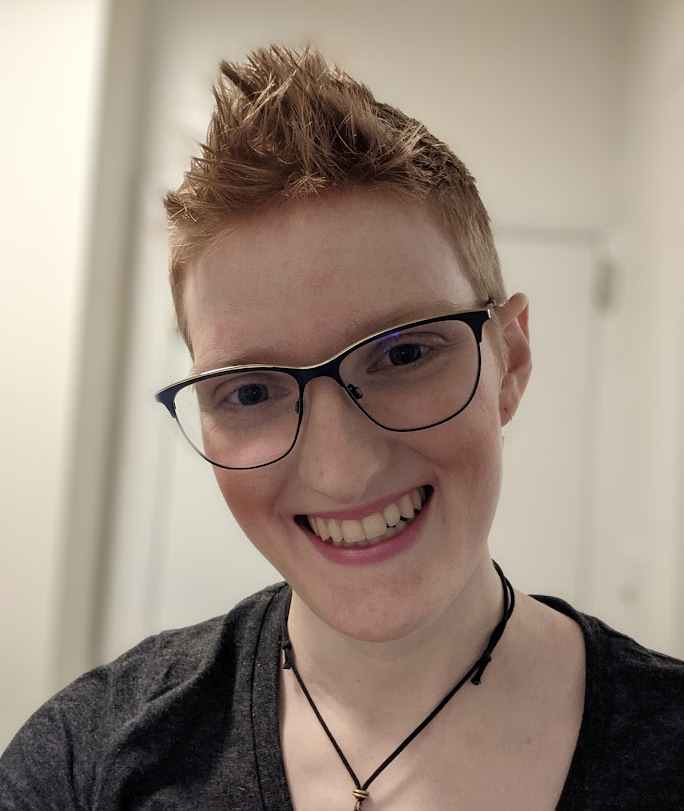 Sarah Manski
Sarah Manski
Department/Unit: Statistics and Probability
Research Description: Sarah Manski's research is in Bayesian statistics. She is currently working on a project focusing on agriculture in the Midwestern U.S. The project aims to quantify the reduction in risk, especially in adverse weather conditions, associated with using regenerative agricultural practices such as rotational diversity, conservation tillage and cover cropping. She plans to integrate cloud computing into this project to expand the scope of this model to additional U.S. states, weather conditions, and soil health practices.
Biography: Sarah is beginning her fifth year in the Ph.D. program in the department of statistics and probability. She has a bachelor's degree in mathematics and computer science from Kalamazoo College and a master's degree in mathematics from Dartmouth College. Her interests are in probability theory, applied Bayesian statistics and statistics education, which are all encompassed in her current research and will form a base for her future career. Outside of academics, she enjoys studying karate, visiting her advisor's sheep farm, and spending time with her partner and their three dogs, a turtle, and a frog.
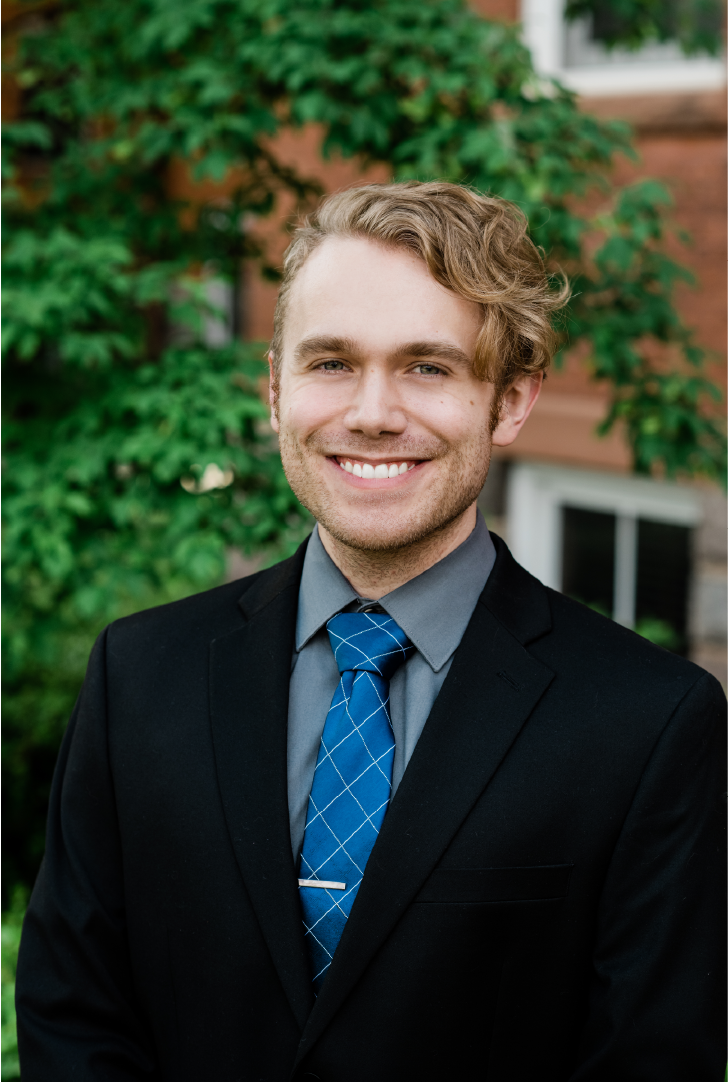 Miles Roberts
Miles Roberts
Department/Unit: Genetics and Genome Sciences
Research Description: Many studies in genetics seek to identify genetic reasons why individuals within the same species differ from each other - for example, finding genetic alterations that increase one person's risk of disease relative to another person. Miles Roberts' research project, in contrast, will be about identifying genetic differences between species that explain differences between those species. This will be useful for understanding the genetic basis of traits in species where it may be difficult to sample many individuals.
Biography: Miles is a third-year Ph.D. student in the Genetics and Genome Sciences Program. His background is primarily in evolutionary biology and he hopes to eventually apply this knowledge to a career in biotech. He spends his spare time exploring local areas and trying to discover the absolute worst movies ever made.
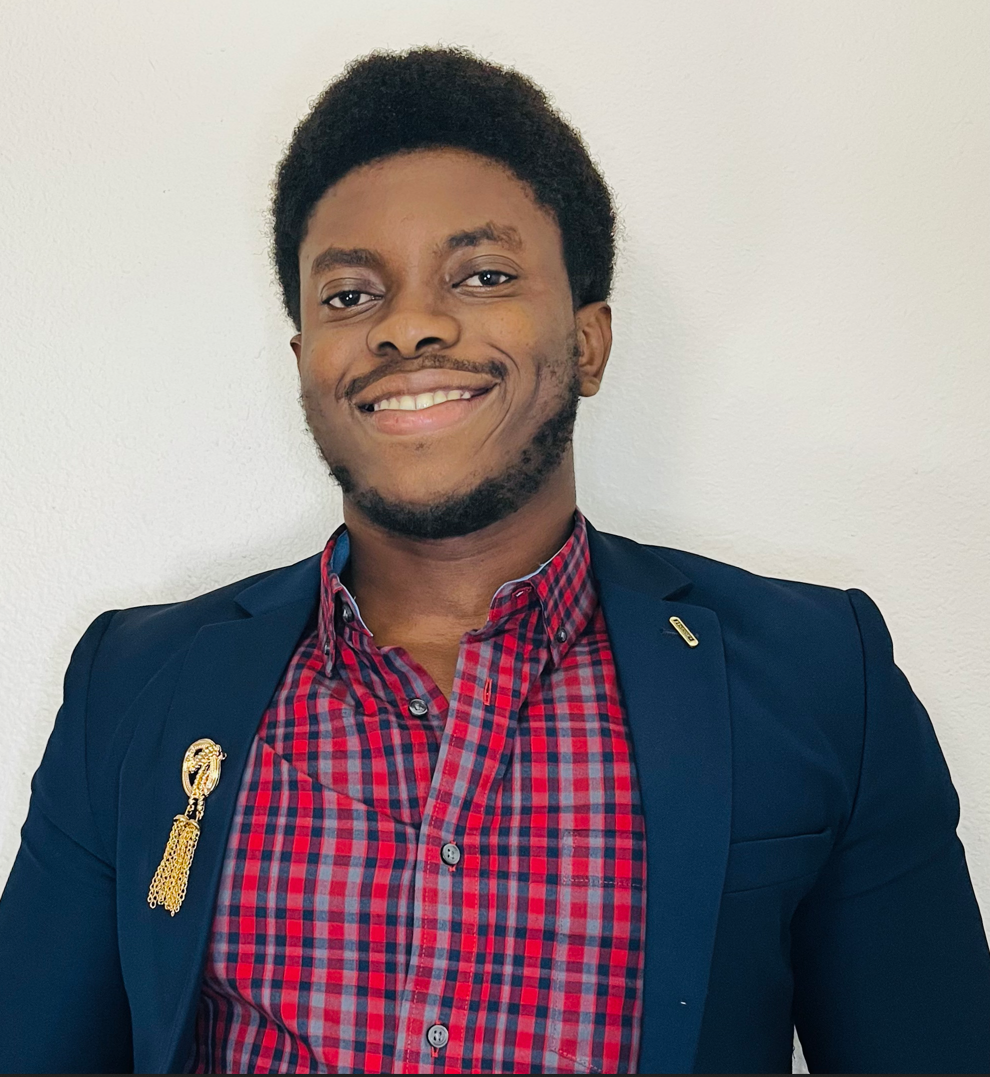
 John Salako
John Salako
Department/Unit: Earth and Environment Sciences (Geological Science Major)
Research Description: John Salakos's research is aimed at understanding and predicting the spatial distribution of tree roots using geophysical tools. This non-invasive approach can reconstruct the roots of orchards (cherries, vineyards, apples, etc.). Knowledge of the spatial distribution of tree roots coupled with remote sensing imagery of the tree canopy will enhance understanding of root and shoot feedback and improve the management of orchards to better cope with climate change. He also aims to quantify carbon stocks in soils and trees in fruit orchards, linking geophysical tools with remote sensing, simulation models, and AI.
Biography: John received his bachelor's degree in Marine Science and Technology from the School of Earth and Mineral Sciences at The Federal University of Technology, Akure, Nigeria. He has working experience in a multinational company (Total Energies), where he served as a Geoscience and Reservoir and HSE Intern during his undergraduate studies. In 2020, he decided to switch carrier paths, moving from geoscience petrology to scientific computing of the earth systems ,focusing on soils and plants. He is currently a master's student in the Basso Computational Agricultural Sciences Lab under the supervision of Prof. Bruno Basso (Earth and Environmental Sciences). John aims to become a geoscience computational system modeler.
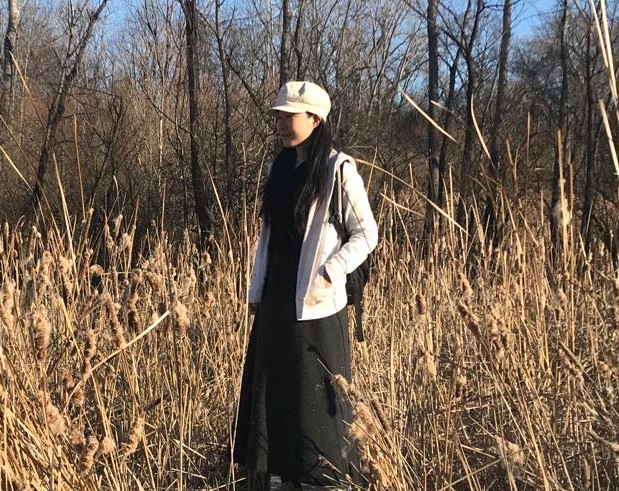 Meicheng Shen
Meicheng Shen
Department/Unit: Geography
Research Description: Meicheng Shen's current project aims to quantify the carbon and/or energy fluxes between the forest and the atmosphere. To simulate the land surface fluxes, her group drives process-based models (or statistical models) with canopy structure or leaf properties derived from multi-platform remotely sensed datasets. By studying the linkage between the forest structure and photosynthesis at the canopy scale in various climatic/abiotic conditions, she wants to understand how well they can model canopy photosynthesis with recently released remotely sensed datasets and how forest canopies may respond to the changing climate.
Biography: Meicheng is a Ph.D. student at the ERSAM lab affiliated with the Department of Geography. Her interest lies in the nexus of forest ecology and remote sensing. With more and more datasets published, she wants to explore the framework to integrate multi-source data with process-based and/or statistical models to understand how forests function as a carbon sink in the changing climate. During her spare time, she enjoys wandering in the woods or exploring historical architecture in nearby cities.
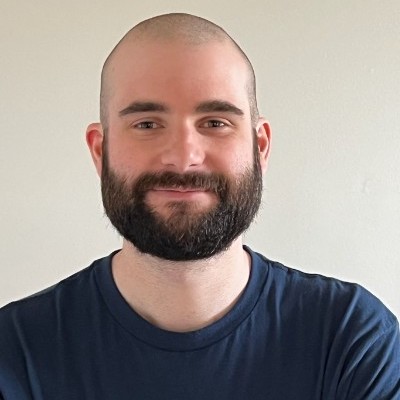 Adam Terwilliger
Adam Terwilliger
Department/Unit: Computer Science
Research Description: Adam Terwilliger is focused on developing an AI mechanic which can understand and characterize vehicles through sound via deep learning. He also works in generative modeling and acoustic synthesis to improve data augmentation, video games, and the metaverse. He hopes his work can one day be deployed as a mobile app that anyone can use to diagnose problems with their vehicle.
Biography: Adam received bachelor's degrees in Computer Science, Mathematics, and Statistics from Grand Valley State University in 2017 and a master's degree in Computer Science from Michigan State University in 2019. He is currently a Ph.D. candidate in the DeepTech laboratory headed by Dr. Joshua Siegel. Adam will be pursuing teaching-focused positions in academia after his Ph.D. In his free time, he enjoys supporting Detroit/MSU teams, fantasy sports, board games, MOOCs, running, and biking.
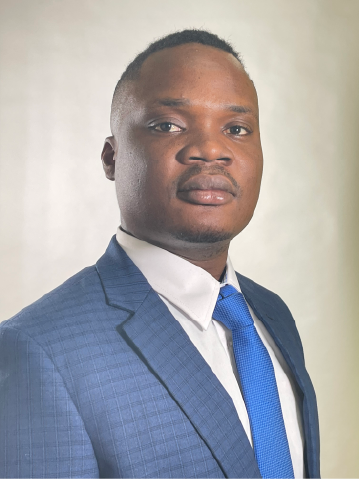

Department/Unit: Political Science
Research Description: With a robust identification system (Ghana card) now in place, Alfred Kwadzo Torsu's research argues that the time is up for Ghana to leverage cloud computing for internet voting (I-Voting). This will not only promote faster collation and delivery of election results but also provide another medium for those who do not want to visit the polling station for a host of reasons and even for citizens who are not presently in the country.
Biography: Alfred is a second-year MPP student at Michigan State University. He is also a research assistant at Afrobarometer’s analysis unit based at MSU. His policy interest revolves around public finance, taxation, and electoral management. He holds a B.A. in Political Science from the University of Ghana, Legon. Alfred is from Ghana and intends to continue his work toward building equitable communities there and throughout Africa after he graduates.
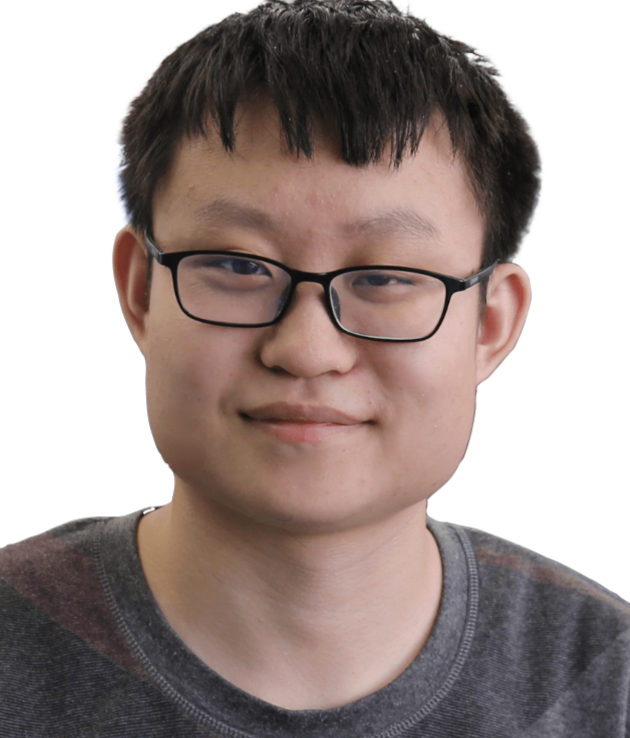 Ziyi Xi
Ziyi Xi
Department/Unit: CMSE
Research Description: Ziyi Xi's main research area is computational seismology. He works on seismic phase (seismic signal along specific propagation path) detection using deep learning techniques in Tonga and Full-waveform tomography of East Asia and West Pacific, trying to develop refined Earth's velocity structure model.
Biography: Ziyi graduated from the University of Science and Technology of China and earned his B.S. in geophysics and B.E. in computer science. He is currently a fifth-year Ph.D. student in the department of Computational Mathematics, Science and Engineering with Dr. Shawn Wei as his mentor. He is passionate about the broad application of machine learning in science and industry and is willing to pursue related R&D roles in the future.
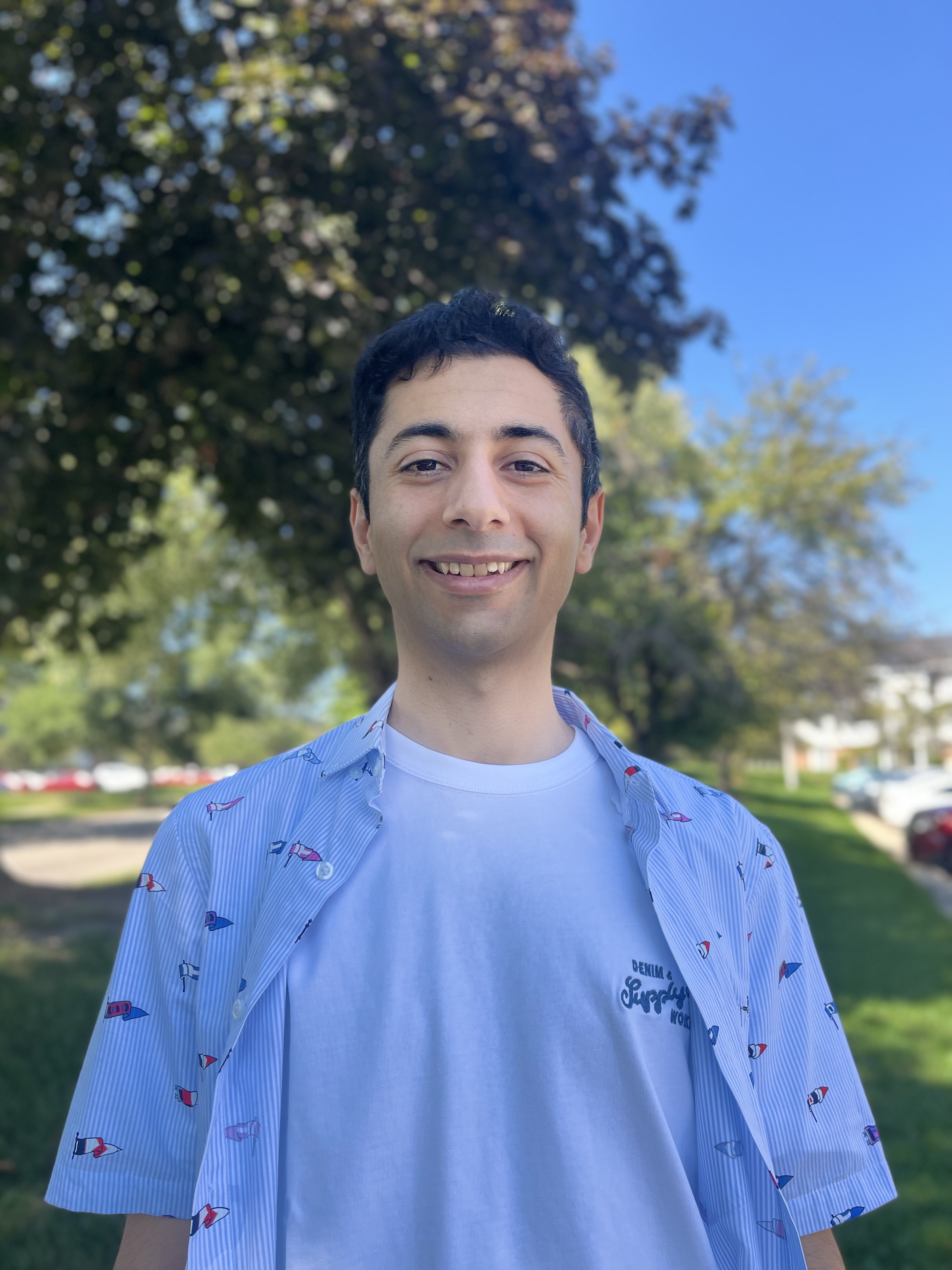 Arash Yunesi
Arash Yunesi
Department/Unit: Statistics and Probability
Research Description: Arash Yunesi is working on the interdisciplinary research area between statistics, computational mathematics, and biology. Arash's group is working on single-cell RNA sequencing to identify genes and make exciting discoveries about cellular behavior using Deep Learning techniques. These discoveries will help in the near future to find more effective cures for cancer and other genetic diseases.
Biography: Before starting his Ph.D. in Statistics and Probability at MSU, Arash received another Ph.D. in Theoretical High Energy Physics from Florida State University. Even though physics will always have a special place in his heart, he has found his new research very fulfilling as it can increase the health and longevity of almost all the taxpayers that are funding his research. In his free time, Arash usually goes jogging and biking around campus and also on the Lansing River trail.
